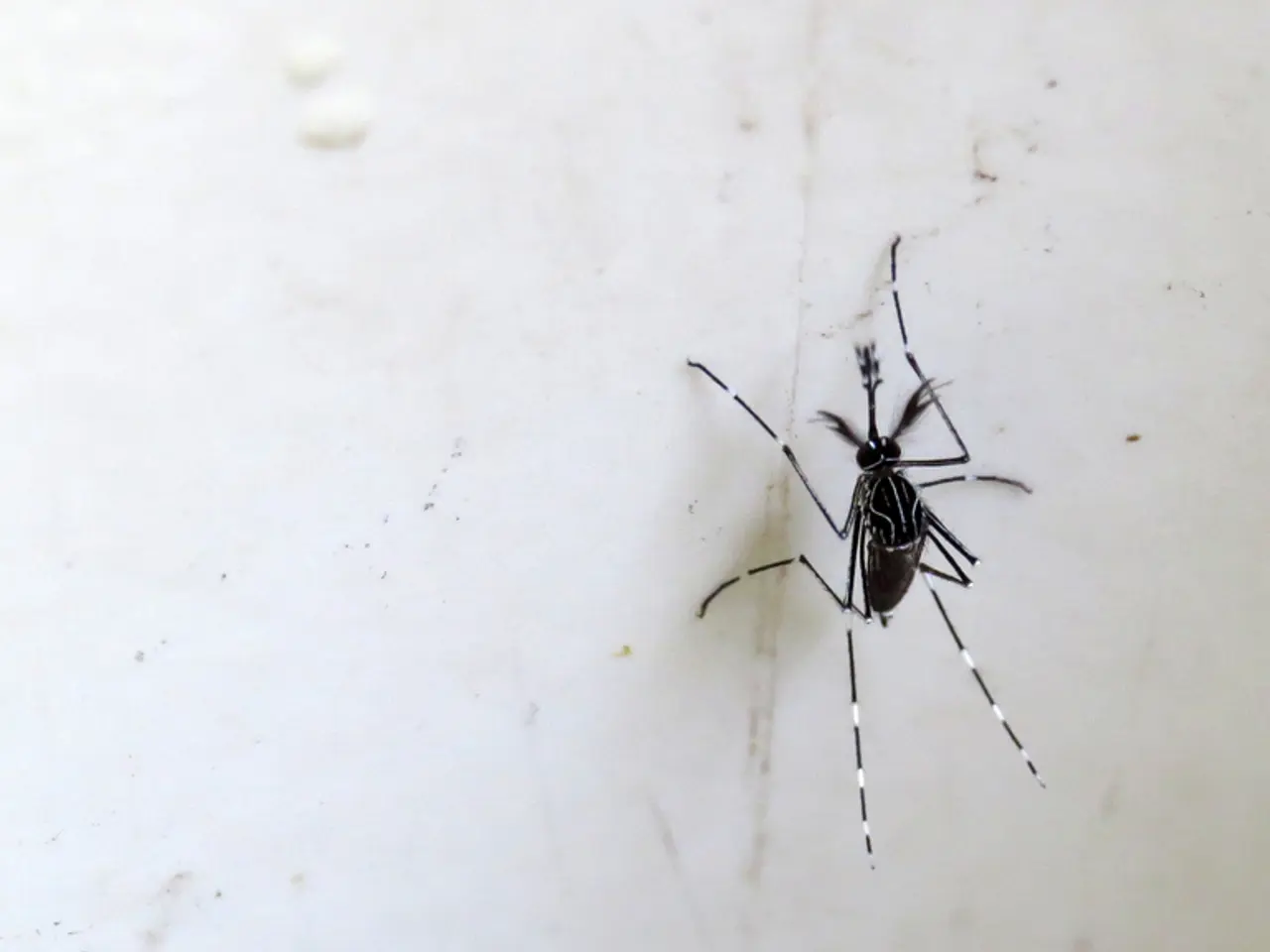Asian Tiger Mosquito Invades Germany, Raising Virus Spread Concerns
The Asian tiger mosquito, Aedes albopictus, has established itself in Germany, raising concerns about the potential spread of tropical viruses. Despite no confirmed cases of disease transmission in Germany as of September 2025, increasing local outbreaks in nearby European countries serve as a cautionary tale.
The Asian tiger mosquito is smaller than native biting midges, with a distinctive black and white striped pattern. It bites during the day and can deliver multiple bites in succession, with a quiet flight pattern. Its spread is facilitated by climate change, global cargo traffic, and adaptability to urban habitats. This invasive species can transmit over 20 viruses, with dengue, chikungunya, Zika, and West Nile being the most significant for Europe.
To protect against these diseases, certain groups at higher risk, such as children under 5, pregnant women, older people, and those with weakened immune systems or chronic illnesses, should take extra precautions. At home, one can keep tiger mosquitoes away by emptying standing water, installing fly screens, using fly nets, wearing long clothing, and using repellents suitable for children. Travellers returning from affected areas should monitor their health, visit a doctor if symptoms arise, and mention their foreign stay to avoid further mosquito bite risk.
While no local transmission cases have been registered in Germany, the potential threat of the Asian tiger mosquito and the viruses it carries is real. By taking preventive measures and staying vigilant, we can help protect ourselves and our communities from these dangerous tropical viruses.
Read also:
- Current Sky News updates on ongoing quarterly ventures
- Ebola Virus and Its Related Disease: An Overview
- Latest Updates on Unresolved Aspects of the Deleterious Legionnaires' Outbreak in NYC, Prior to the Scheduled Hearing
- Sleepless Nights: Anxiety, Stress, and Too Much Caffeine as Potential Root Causes






